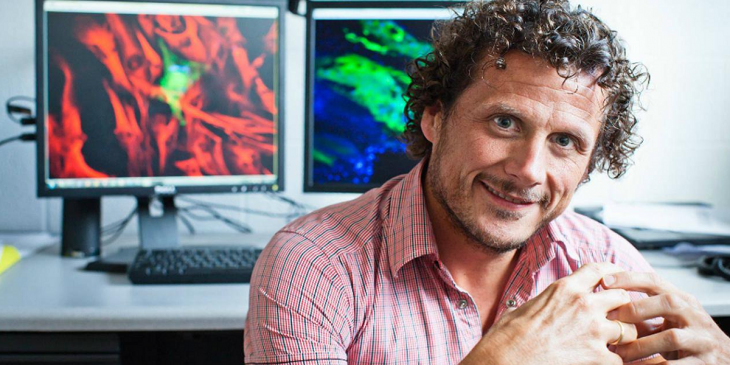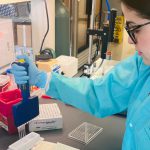Between January and July, measles outbreaks have occurred in 21 different states and the District of Columbia.
The measles virus – which starts with benign symptoms but can result in serious complications – is highly contagious and travels through the air when an infected person coughs or sneezes. On average, each new case will result in 12-18 others.
Dr. Paul Duprex, who will be the new director of the Center for Vaccine Research at the University of Pittsburgh, weighed in on the disease:
Why do you think this outbreak has spread so far?
A: The virus has spread so far because it is highly infectious. Because of this, over 95 percent of people need to be immunized to stop transmission. When fewer and fewer people vaccinate their kids, especially when they live in close proximity, these pockets of people become like standing dominos that tumble over in quick succession after one push. It takes only one case of measles to kick off the human-to-human chain reaction.
In general, the rate of measles cases has rapidly increased in recent years. How would you explain this increase?
A: Fewer people are getting vaccinated because of non-medical exemptions. According to LNP’s most recent report, most of the growth in PA has been in the “philosophical exemptions category, which was introduced three years ago and has grown rapidly as the number of religious exemptions dropped.” So, the odds of someone who is unvaccinated meeting someone who is vaccinated increase.
Also, there are big outbreaks in Europe, and people travel from Europe to the U.S. often.
The majority of people who contracted measles were unvaccinated. How do people who have received the vaccine contract measles?
A: Vaccinating people once generates protective antibodies against the virus in many but not all. That’s why we immunize kids with the measles, mumps and rubella (MMR) vaccine twice, since this increases the number of individuals who make antibodies. However, even this doesn’t lead to everyone making antibodies. That’s just biology; we’re all different. Some people get really sick and die from measles, and others recover without even knowing they had the disease.
How can you protect yourself from measles?
A: There are two options: Lock yourself in a room from birth and never come out, so you are pretty much certain never to become infected or get vaccinated with a product that has been given to millions of people. No medical intervention is without some degree of risk. However, it’s a fact that it’s always riskier to get the disease than to be vaccinated. Although there are some side effects to the vaccine, they are typically very mild.
Remember that measles is not a benign childhood disease which just causes a rash. It can have serious and life-threatening consequences, even in healthy children in this part of the world.









